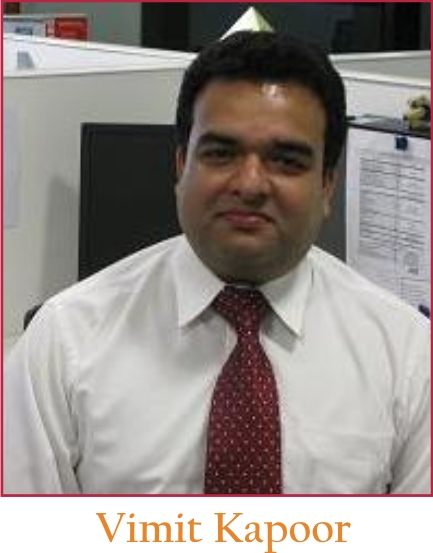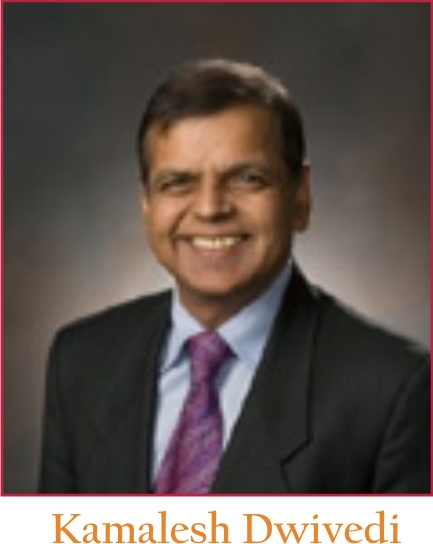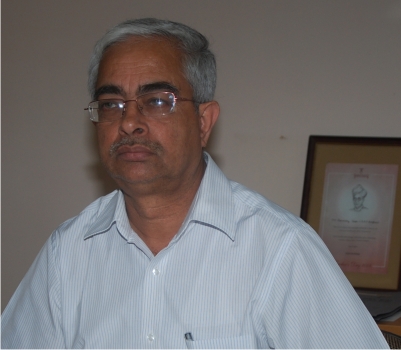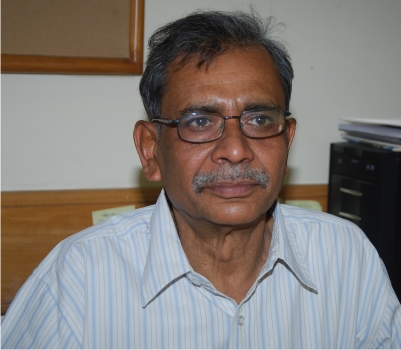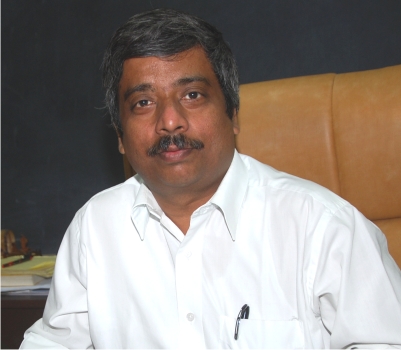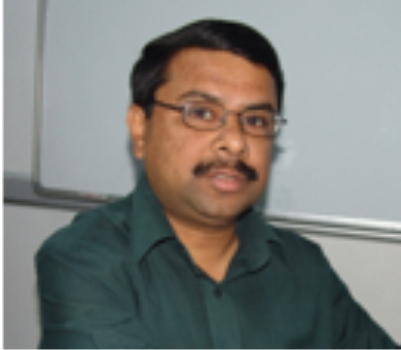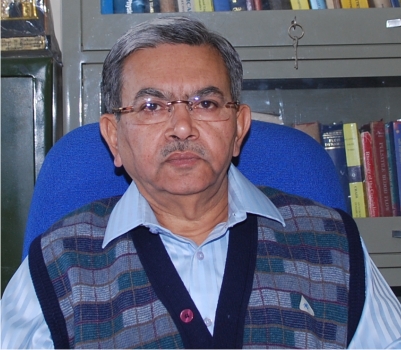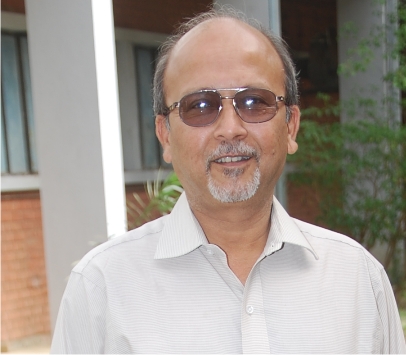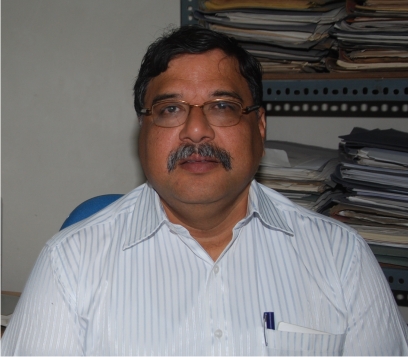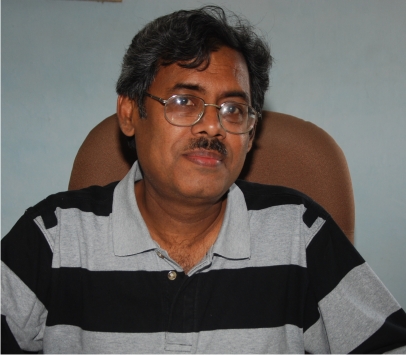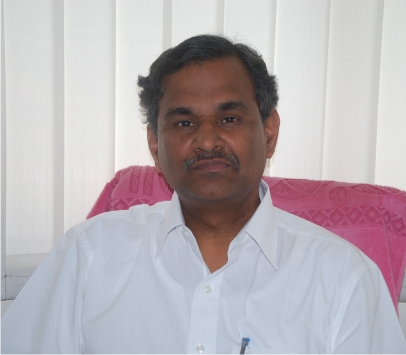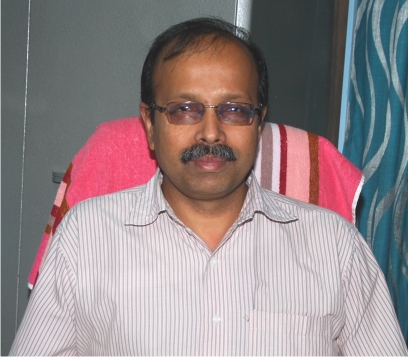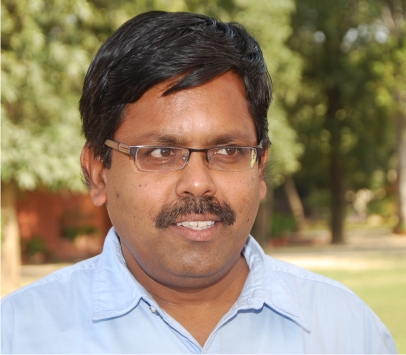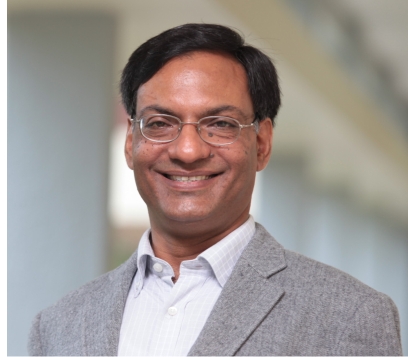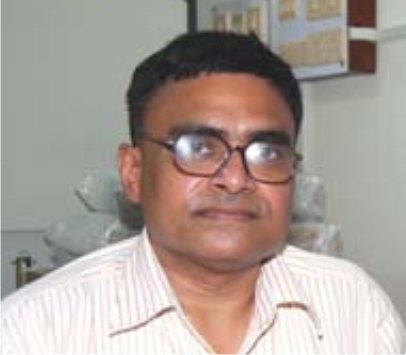
Homecoming
![]()
|
The
35th year Reunion of the Class-of-77
was held from 2nd to 5th February, 2012. More than 78 alumni participated
in the reunion along with their family members. Alumni started arriving
on 2nd February and that night a dinner was arranged at the Visitors’
Hostel Lawns for them. This was followed by bulla sessions. On the 3rd
of February, after an early morning walk around the campus the alumni
attended the inaugural function. There were addressed by the Acting Director
Prof. S. C. Srivastava who stressed upon the need for maintaining a relationship
with the institute
for the benefit of the current students. He urged the alumni to interact
with the students and guide them regarding their career opportunities
in the global scenario. Prof. Srivastava also released a book “The
Primates of IITK” written by Dr. M. S. Madhukar of the University
of Tennessee of USA and Mr. Mohan Arora of Dabur India Limited. The book
narrates funny incidents that happened with students during their stay
at IITK. The alumni were then taken on a guided tour of the campus and
shown the new constructions like the new hostels, academic buildings and
sports complex. Some ex-students chose to cycle around the campus. On
4th February the alumni interacted with the Dean of Resource Planning
and Generation and the Dean of Research and Development. Later they played
a phatta cricket match at the stadium and their family members were taken
to Bithoor. This was followed by lunch at the Director's Residence. Afterwards
the alumni interacted with the current students and spoke about their
present jobs and the location of their work while their families were
taken to a flower show at the institute nursery. In the evening there
was a cultural programme followed by a group discussion on methods to
improve the academic standards at IITK. Dr. Madhukar suggested that community
service be included in the syllabus so that students can think of the
welfare of the community. On 5th February there was another interaction
session for the alumni with the various student groups. The reunion came
to an end with a felicitation ceremony.

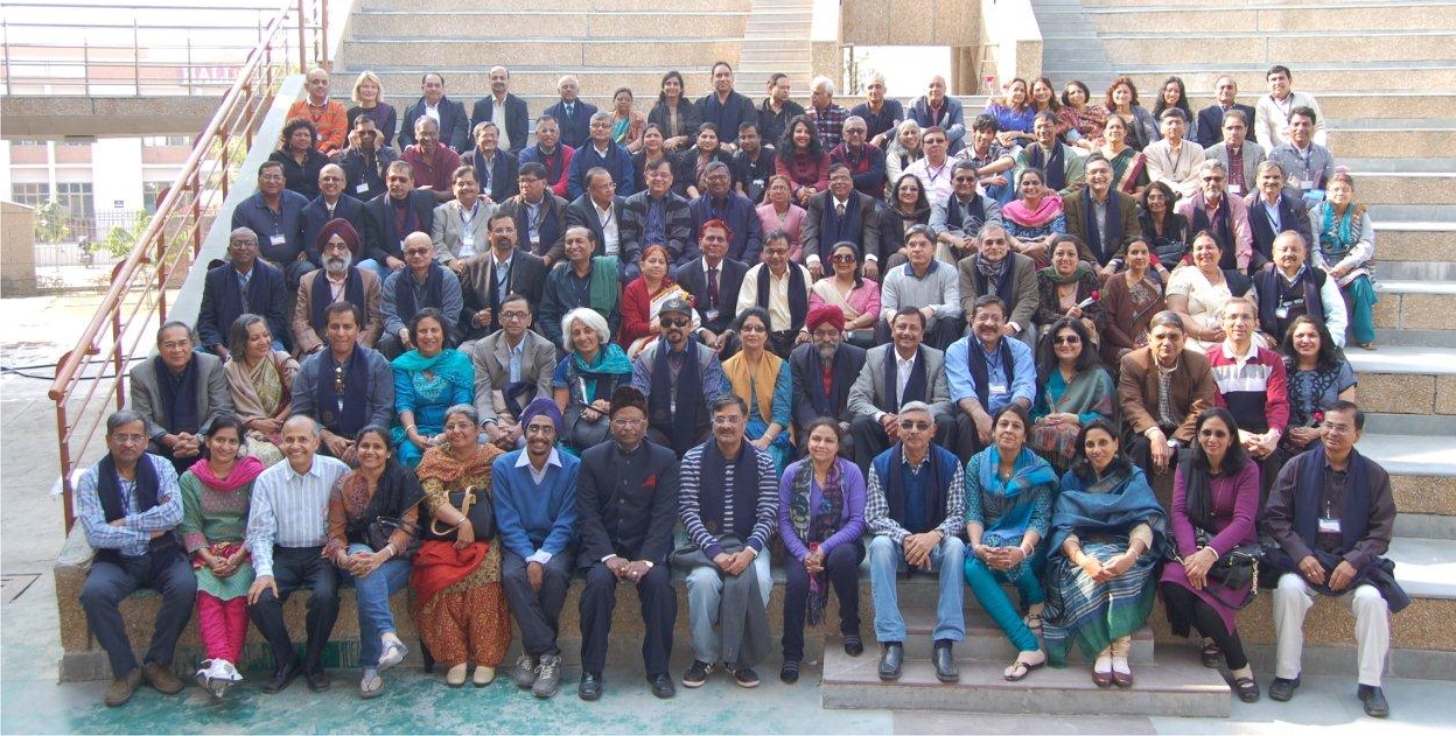
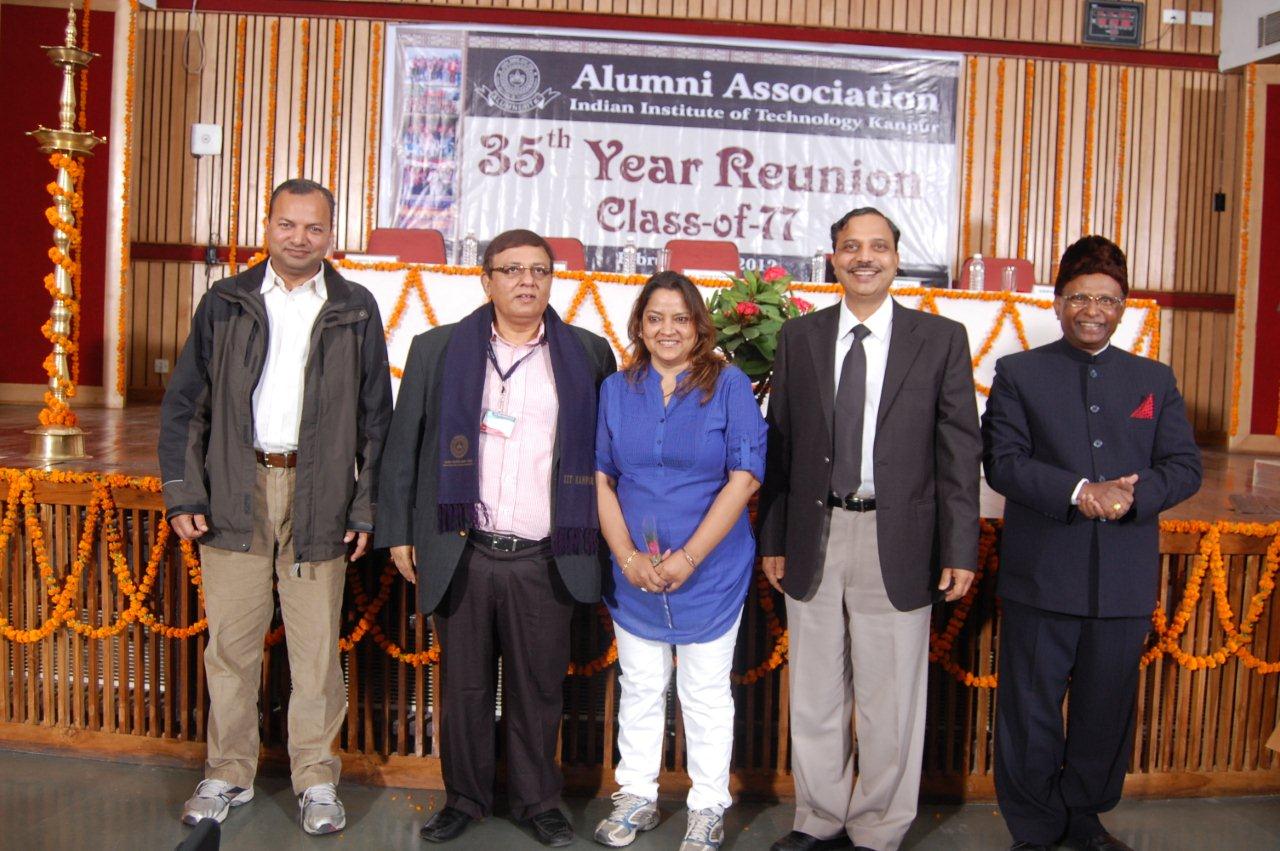
Support
from Alumni and Friends
![]()
|
|
Bogineni
Chenchu Rama Naidu Merit Award:
Dr. Bogineni Chenchu Rama Naidu (M.Tech/MSP/1982), currently President
and CEO of the Bogineni Corporation, has instituted the Bogineni Chenchu
Rama Naidu Merit Award which will be awarded every year at the Convocation
to the First Ranker of the graduating M.Tech batch in the Materials Science
Program. In case of a tie the youngest student will be given this award.
Dr. Naidu founded the Bogineni Corporation (www.bogineni.com) in 1997
to provide integrated computer solutions to the hitech industry.
|
|
Smt.
Padma Kapoor Memorial Scholarship: The
family members of Smt. Padma Kapoor have set up a scholarship through
a Canada Based charity organization named "AIM FOR SEWA". The
scholarship will be awarded to a B.Tech student of any department on a
merit-cum-means basis, with preference given to a student inclined towards
community service. Smt. Kapoor is the grand mother of Mr. Vimit Kapoor
(BT/EE/2000) and the mother of Late Shri Vinay Kapoor (BT/ME/68) and Mr.
Arun Kapoor (BT/ME/67).
|
|
Pandit Girish Ranjan and Sushama Rani Pathak Chair has been instituted by Mrs. Rita Dwivedi and Mr. Kamalesh Dwivedi (BT/EE/79) to honor her father, Pandit Girish Ranjan Pathak, and in memory of her mother, Mrs. Sushama Rani Pathak. This chair is open to a faculty member in the Science and Engineering departments. Pandit Girish Ranjan Pathak was born in Bargaon village, Bihar and served in the Indian government's Intelligence and Vigilance departments. Mrs. Sushama Rani Pathak was born in Multan, Punjab and moved with her family to Delhi after the partition of India in 1947. She worked as a nurse at Lady Elgin Hospital in Gaya.
Faculty
News
![]()
Faculty
Honours and Awards
Prof.
R. P. Chhabra,
Department of Chemical Engineering, has been elected to the Fellowship
of the Indian Academy of Sciences.
Prof. S. Ganesh, Department of Biological Sciences and Bioengineering, has been selected for the CDRI award for excellence in Drug Research, under the Biological Sciences category.
Dr. Yogesh M. Joshi, Department of Chemical Engineering, has been awarded the DAE-SRC Outstanding Investigator award.
Prof. Faiz Ahmed Khan, Department of Chemistry, has been elected to the Fellowship of the Indian Academy of Sciences.
Prof. Ashok K. Mittal, Industrial and Management Engineering Department, has been conferred the M.C. Puri Memorial award by the Operational Research Society of India.
Prof. R. N. Mukherjee, Department of Chemistry has been appointed as the Director of IISER Kolkata.
Prof. Sandeep Verma, Department of Chemistry, has been awarded the DAE-SRC Outstanding Investigator award.
|
|
Prof. Sanjeev K. Aggarwal, Department of Computer Science and Engineering was selected for the Poonam and Prabhu Goel Chair Professorship. Homepage: http://www.cse.iitk.ac.in/users/ska/
|
|
Prof. P. K. Bharadwaj, Department of Chemistry was selected
for the Poonam and Prabhu Goel Chair Professorship. Homepage:
http://www.iitk.ac.in/chm/CHM/facultyinorg.htm
|
|
Prof. Somenath Biswas, Department of Computer Science and Engineering was selected for the Sanjay and Rachna Pradhan Chair Professorship. Homepage: http://www.cse.iitk.ac.in/users/sb/
|
|
Prof. Partha Chakroborty, Department of Civil Engineering was selected for the Rajeeva and Sangeeta Lahri Chair Professorship. Homepage: http://www.iitk.ac.in/ce/CIVIL/faculty/partha/partha.htm
|
|
Prof. Amalendu Chandra,
Department of Chemistry was selected for the Sajani Kumar Roy Memorial
Chair Professorship. Homepage:
http://www.iitk.ac.in/chm/CHM/facultyphysi.htm
|
|
Prof.
Peeyush Chandra, Department of Mathematics and Statistics
was selected for the Sanjay Mittal Chair Professorship. Homepage:
http://home.iitk.ac.in/~peeyush/
|
|
Prof. Aloke Dutta, Department
of Electrical Engineering was selected for the Ranjit Singh Chair Professorship.
Homepage: http://home.iitk.ac.in/~aloke/
|
|
Prof. M. K. Harbola,
Department of Physics was selected for the Satish Chandra Agarwal Chair
Professorship. Homepage: http://www.iitk.ac.in/phy/New01/profile_MKH.html
|
|
Prof. Debasis Kundu, Department of Mathematics and Statistics was selected for the Arun Kumar Chair Professorship. Homepage: http://www.iitk.ac.in/math/faculty/kundu/
|
|
Prof.
Sanjay Mittal, Department of Aerospace Engineering was
selected for the Champa Devi Gangwal Chair Professorship.
Homepage: http://home.iitk.ac.in/~smittal/
|
|
Prof. G. Neelakantan, Department of Humanities and Social Sciences was selected for the Rahul and Namita Gautam Chair Professorship. Homepage: http://home.iitk.ac.in/~gn/
|
|
Prof.
P. K. Panigrahi, Department of Mechanical Engineering
was selected for the N. C. Nigam Chair Professorship. Homepage:
http://www.iitk.ac.in/me/faculty/panigrahi.html
|
|
Prof.
R. Sankararamakrishnan, Department of Biological Sciences
and Bioengineering was selected for the USV Chair Professorship. Homepage:
http://www.iitk.ac.in/bsbe/Sankar.html
|
|
Prof. Ashutosh Sharma, Department of Chemical Engineering
was selected for the C. V. Seshadri Chair Professorship. Homepage:
http://www.iitk.ac.in/che/as.htm
|
|
Prof. Nishith Verma, Department of Chemical Engineering
was selected for the Raj and Neera Singh Chair Professorship. Homepage:
http://www.iitk.ac.in/che/nv.htm
To know more about past and present Chair Professors of IIT Kanpur please visit the link below: http://www.iitk.ac.in/drpg/facultychair.htm
Dr. Dattatraya H. Dethe joined the Department of Chemistry. He obtained his PhD from the Indian Institute of Science Bangalore.
Dr. Rakesh Kumar joined the Department of Aerospace Engineering. He obtained his PhD from Pennsylvania State University USA.
Dr. Shashi Shekhar Mishra joined the Department of Industrial Management and Engineering. He obtained his PhD from IIM Lucknow.
Dr.
Soumik Mukhopadhyay
joined the Department of Physics. He obtained his PhD from the Saha Institute
of Nuclear Physics, Kolkata.
Dr. Raghunath Tewari
joined the Department of Computer Science and Engineering. He obtained
his PhD from the University of Nebraska Lincoln, USA.
Dr.
V. Vanamala joined the Department of Industrial Management
and Engineering. She obtained her PhD from the Indian Institute of Science,
Bangalore.
 |
Distinguished Lectures
Prof. Ramachandra Rao Dasari Distinguished Lecture: Prof. Paras N. Prasad, Departments of Chemistry, Physics, Electrical Engineering and Medicine, Institute for Lasers, Photonics and Biophotonics, University at Buffalo and the State University of New York, Buffalo, USA gave two lectures titled Nanophotonics: Controlling the Excitation Dynamics at Nanoscale to Impact on World Energy and Healthcare and Metaphotonics: A new Multidisciplinary Frontier on 15th March 2012.
The first lecture was titled Nanophotonics: Controlling the Excitation Dynamics at Nanoscale to Impact on World Energy and Healthcare. Prof. Prasad said that Nanophotonics deals with the interaction between light and matter on a nanoscale. Its coverage includes size dependence of optical properties in quantum-confined structures, local field enhancement due to plasmonics that leads to enhanced linear and nonlinear optical responses, as well as nano control of excitation dynamics. The development of inorganic, organic and hybrid materials was discussed. In these systems photon-induced excitation dynamics, energy transfer and nonlinear optical interactions can be controlled and photon localization can be manifested. Several applications of these materials were discussed including solar energy conversion, efficient use of UV photons by carrier multiplication derived from multi-excitation generation as well as the harvest of IR photons efficiently by quantum dots and multipods of a narrow band-gap semiconductor. Application of Nanophotonics in biological systems including in nano medicine was discussed. Examples included photodynamic therapy and gene therapy and their impact on a broad range of healthcare challenges covering cancer, neurological diseases, infectious diseases, addictions, obesity and depression was discussed.
His second lecture was on Metaphotonics: A new Multidisciplinary Frontier. Prof. Prasad said that Metaphotonics is a rapidly emerging new direction that deals with the manipulation of electric and magnetic fields and their coupling in nanoengineered materials to control the field distribution and propagation of electromagnetic waves. The application of metaphotonics ranges from photonics communications, to solar energy harvesting, to sensor technology, to biophotonics. Metaphotonics covers a broad scope which includes: Chiro-Optics that describes the coupling of electric and magnetic dipoles in a chiral medium; Magneto-Optics that describes the magnetic control of optical fields and involves cross-coupling between electric and magnetic fields; Magneto-Plasmonics that describes hybrid materials and systems with synergistic magnetic and plasmonic functionality; Plexcitonics involves plasmon-exciton coupling in hybrid metal/organic/inorganic systems to manipulate absorption and emission of organic/inorganic counterpart as well as the plasmonic field distribution; Spin-Photonics describes optical control of magnetization; Switchable/Transformable Materials in which electric, optical, and magnetic fields can be used for the dynamic and reversible control of an optical field as well as for linear and nonlinear optical functions. The talk concluded with a discussion of the various new opportunities in metaphotonics.
About the speaker: Dr. Paras N. Prasad is a Distinguished
Professor of Chemistry, Physics, Medicine and Electrical Engineering,
the highest rank in the New York State University system. He also holds
the Samuel P. Capen Chair at the University at Buffalo and is the Executive
Director of the multidisciplinary Institute for Lasers, Photonics and
Biophotonics. Dr. Prasad has published over 500 scientific papers, co-edited
six books, and co-authored a monograph (with D. J. Williams), “Introduction
to Nonlinear Optical Effects in Molecules and Polymers.” He has
published several books such as “Introduction to Biophotonics,”
and “Nanophotonics”. Dr. Prasad has won several awards and
honours. He is a Fellow of the American Physical Society and a Fellow
of the Optical Society of America. He is also a recipient of the prestigious
Sloan and Guggenheim fellowships. Dr. Prasad has received the Schoellkopf
Award of the Western New York American Chemical Society for his academic
achievements. He was a recipient of the Morley Prize of the Cleveland
Section of the American Chemical Society in 2004.
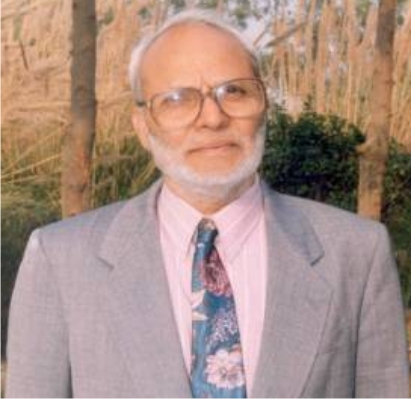 |
About the Donor: Dr. Satish Dasari (MD) has instituted
the Prof. Ramachandra Rao Dasari Distinguished Lecture in the name of
his father who was a former faculty member at IIT K in the Department
of Physics from 1962 - 1974. Prof. Dasari is currently Associate Director
at MIT’s Spectroscopy Laboratory.
Dr. M. Ramamoorty Distinguished Lecture in Electrical Engineering: Prof. Ajit K. Chattopadhyay, Honorary Professor, Electrical Engineering Department, Bengal Engineering and Science University, Shibpur gave a lecture titled Advances and Recent Trends in Power Electronics Technology on 22nd March 2012. In his talk Prof. Chattopadhyay said that power electronics deals with the conversion, control and conditioning of electrical power in the wide range of mW to GW with the help of switching mode power semiconductor devices. It has gone through dynamic evolution in the last five decades. In this lecture, the importance of power electronics was discussed initially after a brief historical introduction. The recent advances of power semiconductor devices (like high power IGBT, IGCT and IEGT in particular), power converters, variable frequency ac drives and their advanced control methods (like vector and direct torque control) were reviewed briefly. The emerging applications of power electronics in the field of power systems such as FACTS, devices like STATCOM, UPFC, DVR, Active Filters, HVDC, Distributed Generation interfaces with Renewable Energy Sources were also touched upon. The prognosis of different areas were highlighted along with likely trends for future development.
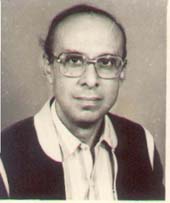 |
About the Speaker: Prof.
Ajit K. Chattopadhyay received his BE in Electrical Engineering from Calcutta
University, M Tech degree in Electrical Machines from IIT Kharagpur, and
the PhD degree from the University of Manchester, England. Prof. Chattopadhyay
joined the Electrical Engineering Department at IIT, Kharagpur in 1960,
became a Professor in 1976 and the Head of the Department during 1992-1995.
He has authored more than 140 research publications in the field of Electrical
Machines, Power Electronics and Electric Drives. He is a Life Fellow of
IEEE and a Fellow of the National Academy of Engineering (India), a Life
Fellow of IE (I), IETE (I) and of the West Bengal Academy of Science and
Technology. He has received the Bimal Bose Award (1986), Bharatia Cutler
Hammer Prize (1986), Tata Rao Prize of IE (India) (1993) and the Distinguished
Alumnus Award (2006) of BESU, Shibpur. He was elected as a Distinguished
Lecturer of the IEEE Industry Applications Society. He has co-authored
a book titled “Power Quality Improvement in Cycloconverter-fed Systems”
published by VDM Verlag, Germany.
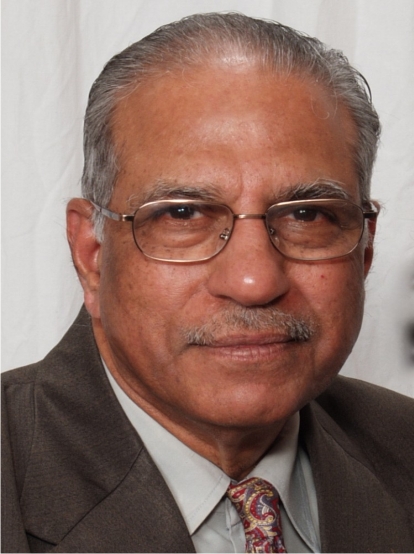 |
About Prof. M. Ramamoorty: Prof. Mylavarapu Ramamoorty
joined the faculty of the Electrical Engineering Department at IIT Kanpur
in 1967. In 1968, he established the first graduate program in power electronics
in India. He left IIT Kanpur in 1977 to spearhead research and development
activities in various industry and government institutions. He was instrumental
in establishing a number of internationally recognized research and testing
laboratories in India. Dr. Ramamoorty authored seven books and more than
200 technical papers and is the recipient of numerous awards from professional
bodies.
About the donor: Dr. Shashi M. Kuppa (BT/CE/1985) has instituted a Distinguished Lecture Series in Electrical Engineering in the name of his father Prof. M. Ramamoorty. Dr. Shashi M. Kuppa is currently the chief, Special Vehicle and Systems Division Officer of Crashworthiness Standards, National Highway Traffic Safety Administration Department of Transportation, New Jersey, USA.
Dr. R. S. Pandey Distinguished lecture in the Department of Mechanical Engineering: Prof. Jyeshtharaj Bhalchandra Joshi, DAE-Homi Bhabha Chair Professor, Homi Bhabha National Institute, Mumbai gave a lecture titled Dynamics of turbulent flow structures and transport phenomena: implications to equipment design on 22 March, 2012. Most heat transfer equipment are operated in a turbulent regime. The flow patterns in these equipments are complex and are characterized by flow structures (“turbulent eddies”) of a wide range of length and time scales. The accurate quantification of these flow structures is very difficult and hence the present design practices are still empirical. Methods were discussed regarding the age, size, shape and energy content distribution of the flow structures. Consideration of these structure properties is important for the accurate estimation of design parameters such as heat transfer coefficient, mixing efficiency, drag coefficient etc. The flow structure information provides useful insights into the views of earlier established analytical and heuristic theories of heat and mass transfer. These studies have led to novel equipment designs, which have already been implemented in the industry.
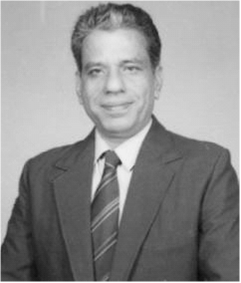 |
About the Speaker: Prof. J. B. Joshi is a Chair Professor of DAE-Homi Bhabha National institute Mumbai, India and is also the J. C. Bose Fellow in the Institute of Chemical Technology Mumbai, India. He did his BE and ME in Chemical Engineering from the University of Mumbai in 1971 and 1972 respectively, followed by a Ph.D. from the same university in 1977. He has several awards to his credit including the INSA young scientist medal in 1981, and the Amar-Dye-Chem Award for Excellence in Research and Development given by the Indian Institute of Chemical Engineers in 1983. Prof. Joshi has published over 300 papers and 50 monographs/ book chapters/State-of-the-Art Reviews. Many of Prof. Joshi's designs and products are implemented in the large, medium and small scale industry. He has also taken the initiative to promote science awareness among school going students. His research and teaching interests are in Fluid Mechanics, Multiphase Reactor Design, Computational Fluid Dynamics, Atomic Energy, Solar Energy and Bio-Energy.
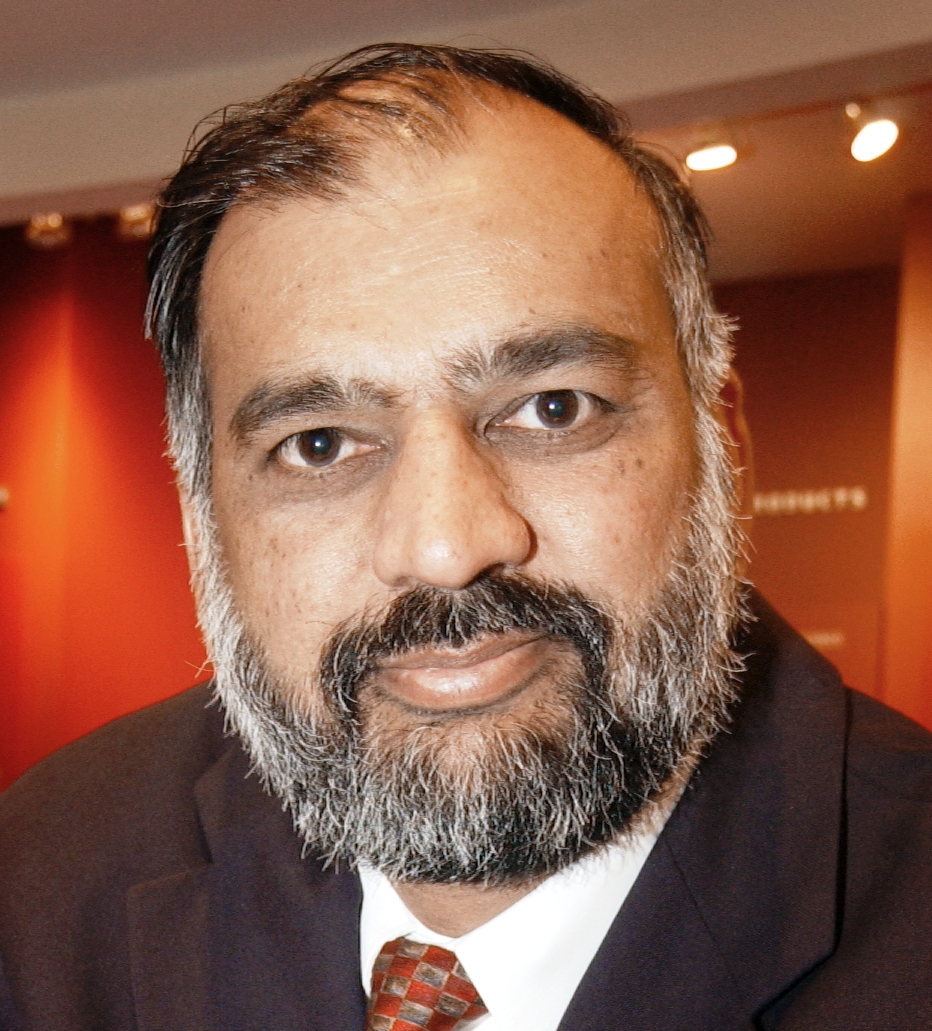 |
About the donor: Dr. R. S. Pandey Distinguished Lectures Series in Mechanical Engineering is supported by Mr. Rakesh Pandey (BT/ME/1978). Under this lecture series, the Department of Mechanical Engineering, IIT Kanpur organizes one lecture in each semester by a distinguished person. Mr. Pandey is the Chief Financial Officer (CFO) of the IITK Foundation. He joined the foundation in 2006 and served as its Secretary from 2006-09. In 2008, he was elected president of the IITK Alumni Association. He is a Distinguished Research Scientist at Olin College of Engineering and Executive-in-Residence at Northeastern University, USA. Mr. Pandey had a long tenure in Research at the Bose Corporation spanning research, innovation, and product development, business start-up, sales and marketing. He launched and ran Bose's subsidiary in India (1995), started Bose Technology Center in India (2003) and created the Center for University and Industry Research (2008). Mr. Pandey holds a Master's from Penn State University.
Professor
C. N. R. Rao Distinguished Lecture: Professor Sanjay Mittal,
Department of Aerospace Engineering gave a lecture titled “Using
High Performance Computing (HPC) for Understanding Fluid Flows”
on 26th March 2012. Prof. Mittal began the lecture with a brief overview
of Computational Fluid Dynamics (CFD). Then he gave a summary of his group's
recent research efforts to understand fluid flows, by using computational
tools. Prof. Mittal also discussed his group’s work towards understanding
the mechanism of swing and reverse-swing of a cricket ball. Questions
such as, 'can a new ball reverse-swing?' were also addressed. In general,
Prof. Mittal and his group employ modern stabilized finite element methods
for solving the governing equations for fluid flows. They are utilized
to compute flows at various Reynolds and Mach numbers including those
that involve moving boundaries. Some of the flow problems arise from practical
applications while others add to the understanding of certain fundamental
issues in fluid mechanics. Most of the applications require large scale
computing. To that extent, whereever possible, in-house codes have been
parallelized using MPI libraries. Scalability on parallel computers has
also been demonstrated. Parallel implementations on the Linux cluster
have resulted in super-linear speed-up. One of the several problems that
the Mittal group studied is the flow in the air-intake of a high speed
engine. A mixed compression intake for a Mach=3 flow is considered. Viscous
effects as well as boundary layer bleed are modeled. The buzz instability
is observed in certain cases. Both little and big buzz are found. Their
frequency is related to the super-harmonics of the intake duct which acts
as an open-closed organ pipe. The role of bleed in controlling the buzz
oscillations is studied. A brief overview of their work on understanding
wakes of bluff bodies was presented.
About the Speaker: Prof. Sanjay Mittal did his B.Tech in Aerospace Engineering from IIT Kanpur in 1988. He received his Ph.D. from the University of Minnesota, USA in 1992. He joined IIT Kanpur as a faculty member in 1994. He has served as the Dean of Academic Affairs of the Institute. He received the Shanti Swarup Bhatnagar Prize in 2006. He is a Fellow of the Indian National Academy of Engineering and of the Indian Academy of Sciences. His research interests include unsteady aerodynamics, laminar separation bubbles on airfoils, aerodynamic shape optimization, fluidstructure interactions, bluff body flows, linear stability analysis, buzz instability in air intakes, aerodynamics of sports balls, train aerodynamics, traffic modeling and high performance computing.
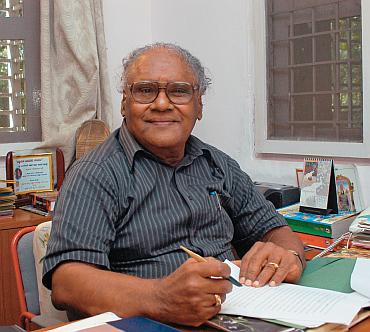 |
About the Donor: Chintamani Nagesa Ramachandra Rao was born on June 30, 1934 in Bangalore. In 1958, he completed his PhD from Purdue University. From 1963-76, he was a Professor of Chemistry at IIT K. During 1984-89, he was the Director of IISC Bangalore. Dr. Rao has published more than 45 books and 1500 research papers with more than 42,000 total citations. Concurrent with his academic excellence, he was appointed as Chair of the Scientific Advisory Council to the Indian Prime Minister in 2005. He has won several international prizes and is a foreign member of the US National Academy of Sciences, American Academy of Arts and Sciences and of the Royal Society (London). He has also been given the high honors of Padma Shri and Padma Vibhushan by the Government of India. The annual C. N. R. Rao Lecture is supported by a generous donation from Prof. Rao.
Samsonov Memorial International Lecture on Inorganic Materials: Prof. Ir. Eric J. Mittemeijer, Director of the Max Planck Institute for Intelligent Systems, Stuttgart, Germany gave a lecture titled Unusual Properties of Nanosized Materials on 26th March, 2012. Prof. Mittemeijer said that the term “nanosized materials” is usually meant to indicate polycrystalline material having grain/crystallite sizes (far) smaller than 100nm. Such materials can occur as powder materials, as thin films, as nanosized second-phase particles in a matrix, etc. A main characteristic of such materials is the very high grain-boundary/interface density. Properties of nanocrystalline materials therefore can be very different from the corresponding bulk materials. Prof. Mittermeijer discussed their recent work which revealed that in the case of Ni, crystallite-size reduction first leads to “normal” (in the above sense) lattice contraction, but upon reducing the crystallite size to about 45 nm or below, an abnormal increase of the lattice parameter occurs. A so-called Gibbs-Thomson effect is believed to be responsible for the stabilization of phases as nanocrystals which as bulk material would be unstable. This effect was demonstrated to occur for iron nitrides upon nitriding a nanocrystalline iron film. Prof. Mittermeijer also talked about the mechanism of unusual grain-growth behaviour of nanocrystalline material, as demonstrated by annealing ball-milled, nanocrystalline, elemental powders. He concluded his talk with a discussion of metal-induced crystallization involving amorphous silicon (a-Si) and nano crystalline aluminum (c-Al). This work is likely to lead to novel routes for the growth of nanostructures.
About the Speaker: Professor Dr. Ir. Eric J. Mittemeijer
is currently the Director of the Max Planck Institute for Intelligent
Systems (formerly Max Planck Institute for Metals Research) Stuttgart,
and is also a Professor (chair holder) at the Institute for Materials
Science at the University of Stuttgart. His research is focussed on the
relation between the properties and structure of new materials (e.g. nanomaterials)
and, in particular, surface layers, and phase transformations of metastable
materials. He has published more than 600 papers in international scientific
journals.
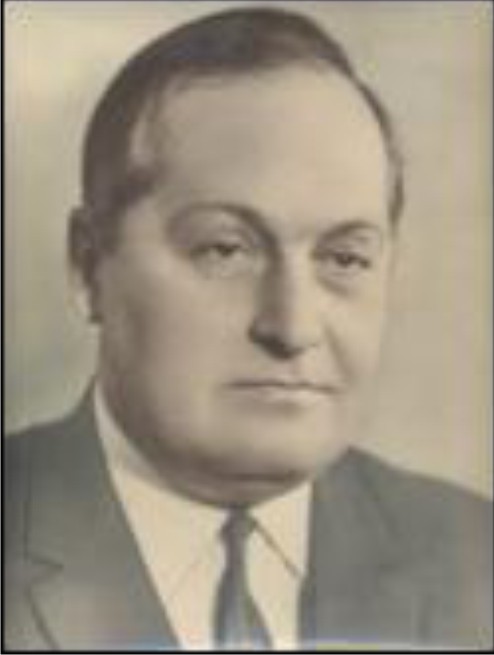 |
Professor
G.V. Samsonov (1918-1975): Prof. Grigorii Valentinovich
Samsonov was born on 15th February 1918 in a town near Leningrad (now
St. Petersburg). After earning his first degree at the Nonferrous Metals
Institute in Moscow, he joined the Soviet Navy. At the end of the Second
World War, he was stationed in the Soviet occupied zone of Austria. It
was here he became interested in the extensive refractory metals and their
compounds. After the cessation of the war, Prof. Samsonov returned to
Moscow and resumed his higher studies and research under the guidance
of Professor M. A. Merson (Institute of Steel and Alloys), a noted powder
metallurgist of the then USSR. After completion of his PhD degree, Prof.
Samsonov joined the Institute of Metalkeramika (powder metallurgy) in
the Ukrainian Academy of Science at Kiev as a senior scientist. The Institute
was later renamed “Institute of Materials Problem.” Within
a few years, he was elevated to the post of Deputy Director. Simultaneously,
he was invited to head the Powder Metallurgy Department of Kiev Institute
of Technology. Prof. Samsonov made seminal contributions to the structure-properties-processing-performance
relations of inorganic materials such as carbides, nitrides, borides,
silicides, germanides, selenides, phosphides. Prof. Samsonov authored
nearly 1500 papers. He also authored/edited 50 books and monographs including
the seminal book “Configurational Model of Matter”. He has
mentored several students who are now spread throughout the world.
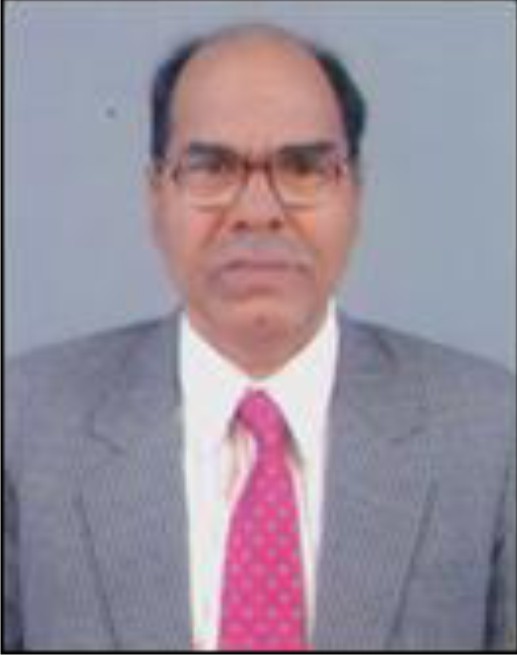 |
About the Donor: Prof. Gopal Shankar Upadhyaya joined
the Department of Metallurgical Engineering (now Materials Science and
Engineering) at the Indian Institute of Technology Kanpur as a Professor
in the year 1976. Prior to that he was an Associate professor at the University
of Roorkee from 1964-1975. He was awarded the doctorate degree from the
Kiev Institute of Technology, Ukraine in 1969 under the guidance of the
internationally renowned materials scientist Professor G.V. Samsonov.
Prof. Upadhyaya has published more than 300 papers and authored/edited
16 books. He has served on the Advisory Boards of practically all the
major conferences and journals in powder metallurgy. Prof. Upadhyaya's
past graduate and doctorate students are actively engaged in powder metallurgy
research and industry. After retiring from IIT Kanpur (in 2001), Prof.
Upadhyaya currently resides in Varanasi. This lecture has been instituted
by him in honour of Prof. G. V. Samsonov.
Professor Jagadishwar Mahanty Distinguished Lecture Series in Physics: Professor Madan Rao, Raman Research Institute (RRI), Bangalore and National Centre for Biological Sciences (TIFR), Bangalore gave a lecture titled “Active Cell Mechanics and Information Processing” on 30th March, 2012. Prof. Rao spoke of the cell as an organized collection of molecules that interact with each other: a chemical engine subject to physical laws. Essential to the physics of the living cell is that molecules that move around in the cellular environment are subject to forces that arise from energy-consuming active processes. He pointed out that the collective behavior, fluctuations and mechanical response of active matter are fundamentally different from ordinary matter. In addition, molecules in the living cell are carriers of information. The living cell manages the organization and flow of information by means of active mechanical stresses generated within it. Prof. Rao said that this has dramatic consequences for the spatiotemporal regulation of chemical reactions in the cell. He also discussed some recent ideas on how this allows the cell to solve an optimization problem in information processing. This thus brings together two apparently unconnected seminal papers of A. Turing.
About the speaker: Prof. Madan Rao is a well-known name in the fields of theoretical Condensed Matter Physics, Non-equilibrium Statistical Physics and Biological Physics. He obtained his PhD from IISc, Bangalore. Prof. Rao joined RRI, Bangalore, in 1994 and he is currently a professor there. He is also an adjunct professor at NCBS (TIFR), Bangalore. Prof. Rao has published numerous research papers during his illustrious research career. In recognition of his pioneering contribution to the fields of theoretical condensed matter physics and biological physics, he was awarded the prestigious Swarnajayanti grant, the B. M. Birla science award in Physics and also the Shanti Swarup Bhatnagar Award. He is an elected fellow of the Indian Academy of Sciences, Bangalore.
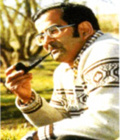 |
About the Donor: Prof. Jagadishwar Mahanty Lecture Series in Physics has been instituted by Dr. Siddharth Mahanty in memory of his father, Prof. Jagdishwar Mahanty, who was a faculty member in the Physics Department at IIT Kanpur from 1961-1972. He made important contributions to Condensed Matter Physics, particularly, to the study of many body physics, lattice dynamics, van-der-Waals interactions and the electronic structure of solids. He was instrumental in shaping the Physics department during its infancy. In 1972, he joined the prestigious Australian National University and superannuated from there in July 1995 due to ill health.
Institute Lectures
Professor
Ian Angell, Professor Emeritus, London School of Economics
gave a lecture titled “Science's First Mistake: Delusions in pursuit
of Theory” on 4th January, 2012. In his talk, Prof. Angell pointed
out the conceit of modernism and scientism that is grounded in the arrogance
of scientific certainty. The message of his book 'Science's First Mistake'
is that understanding through scientific theory, and application via its
methods, can never expose the real nature of reality. Indeed there is
no such thing as 'understanding', only mere description through observation.
Science's First Mistake is to forget that its abstractions do not deal
with reality. Rather, its models and theories are 'unnatural in nature'
and artificial, and indeed quite absurd when viewed from outside of Science.
As a controversial postscript, and although an agnostic himself, Angell
argued that the arguments of atheists like Richard Dawkins are logically
indefensible, and that religion is every bit as relevant as Science for
day-to-day living, probably more so.
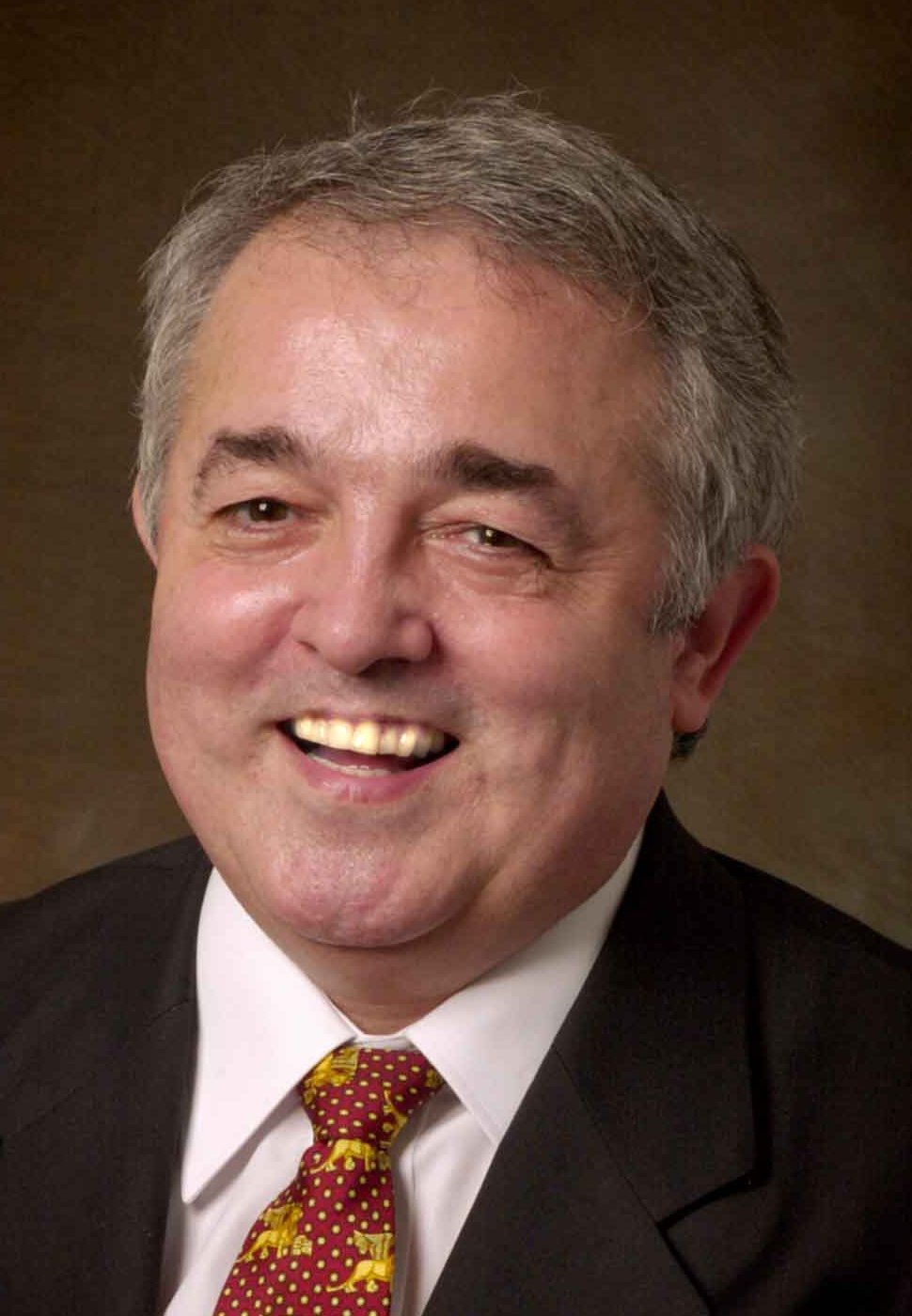 |
About the speaker: Ian Angell was Professor of Information Systems at the London School of Economics for twenty-five years, where he taught courses on technological innovation and its implications. He is a forecaster of the socio-political and business consequences of Information and Communication Technologies, with over four decades of research experience into the impact of computerization on society. On his early retirement in September 2011, he was made Professor Emeritus at LSE. He now divides his time between research, consulting, lecturing worldwide, writing books and articles, and supporting the Alumnus Office at LSE.
Prof.
Jagadish Shukla, Department of Atmospheric, Oceanic, and
Earth Sciences (AOES), George Mason University, USA and President, Institute
of Global Environment & Society (IGES) gave a lecture titled “Global
Warming: Science, Politics, Ethics and Policy” on 14th February
2012. Prof. Shukla's lecture had three parts. The first part reviewed
our current understanding of the mechanisms for weather and climate variations,
and showed some evidence for predictability in the midst of chaos. The
second part showed comprehensive evidence from observations and models
presented by the Inter-governmental Panel on Climate Change that global
warming is real and caused by human activities. The third part examined
the role of science and politics in ethical choices and policy options
for adaptation to, and mitigation of, the impacts of climate change. Uncertainty
in predicting changes in the Indian monsoon in a changing climate, and
India's contributions to greenhouse gas emissions were also discussed.
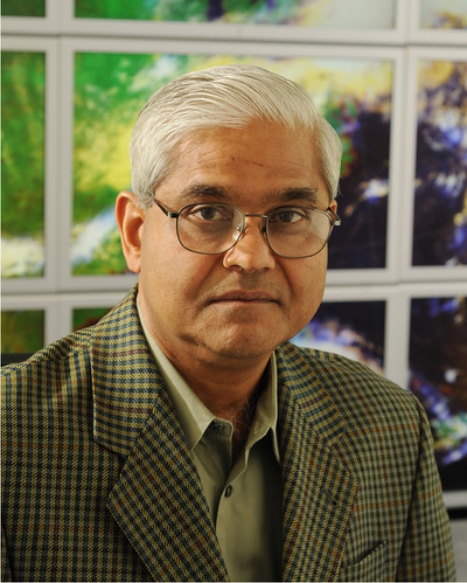 |
About the speaker: Prof. Jagadish Shukla was one of the lead authors of the 2007 report of the Inter-governmental Panel on Climate Change (IPCC) which shared the 2007 Nobel Peace Prize with Vice President Al Gore. He is a recipient of several other honours and awards including the Padmashree by the Government of India ,the International Meteorological Organization (IMO) Prize, the Rossby Medal and the Exceptional Scientific Achievement Medal of NASA. He is also an elected Fellow of the American Geophysical Union. Prof. Shukla has made contributions to the science of meteorology and to the global society through fundamental scientific advances, institution building, and international cooperation in meteorology for the betterment of humankind. He has made significant contributions to the understanding of the predictability of weather and climate including the Asian monsoon dynamics, deforestation and climate change. His research has established that there is predictability in the midst of chaos and that there is a scientific basis for short-term climate prediction.
Workshops and Conferences
The XVI International Workshop on the Physics of Semiconductor Devices: The XVI International Workshop on the Physics of Semiconductor Devices was organized at IIT Kanpur by IIT Kanpur and the Semiconductor Society of India from 19th – 22nd December 2011. This workshop provided a valuable forum for interaction between scientists and technologists working in the area of semiconductor materials and devices. The topics that were covered in this workshop were Optoelectronics, VLSI and ULSI Technology, Nanotechnology and Emerging Areas, MEMS and Sensors, Device Modelling and Simulation, High Frequency/Power Devices, Photovoltaics, Organic Electronics, Display and Lighting.
Conference on tropical rivers: A three-day conference on “Tropical Rivers: hydro-physical processes, impacts, hazards and management” was held from 5th to 7th January 2012 as a part of the International Geological Correlation Programme (IGCP) project IGCP 582. This conference, organised by Prof Rajiv Sinha, focused on long-term, as well as short term direct impacts of human-induced change and climate variability and management of tropical river basins. There were talks on identification, quantification and modeling of key hydro-geomorphologic indicators during the past and present times. The potential impacts of global change on river systems and their socio-economic implications were also discussed. During the conference there was also a day-long field excursion along the banks of the Ganga river which are characterized by 10-15 meters high excellent cliff sections exposing alluvial stratigraphy for a time span of 30 ka. A visit to the Ganga barrage at Kanpur was also organised and the large scale human induced change in the course of the Ganga for the construction of the barrage was discussed. A number of scientists and researchers took part in the conference including Prof. Vinod Gaur, a noted scientist from CSIR's Centre for Mathematical Modelling and Computer Simulation, Bangalore, Prof. S. K. Tandon, Department of geology, University of Delhi, Dr. Snighha Ghatak, Geological Survey of India, and Dr. Vikrant Jain, department of geology, University of Delhi.

ISEC 2012, the 5th India Software Engineering Conference, an annual event of the Special Interest Group on Software Engineering (SIGSE) under the umbrella of the Computer Society of India, was held at IIT Kanpur during 22nd to 25th February, 2012. The conference brought together researchers and practitioners from across the world to share the results of their work. There was also a session in which the best paper award winning papers of FSE (Symposium on Foundations of Software Engineering) and ICSE (International Conference on Software Engineering), were presented by the authors. Prof. Nenad Medvidovic' of the Computer Science Department, University of Southern California, and Prof. Pankaj Jalote, Director, IIIT Delhi were the keynote speakers of the conference. The conference had 125 participants from across the world. The general chairs of the conference were Prof. T V Prabhakar and Prof. Sanjeev K. Aggarwal, both of IIT Kanpur.

Inter IIT Staff Sports Meet 2011
The 47th Inter IIT Sports Meet was held from 21st to 25th December 2011 at IIT Kharagpur which is celebrating its Diamond Jubilee. The various competitive events were Athletics (100m, 200m, 400m, 1500m, High Jump, Long Jump, Shot Put, Discus Throw, Javelin Throw, Hammer Throw, 4x100m Relay), Basketball, Football, Volleyball, Badminton, Cricket, Lawn Tennis, Table Tennis and Throw-ball (Tennis ball) and Badminton for women. In this Meet IIT Kanpur bagged gold medals in cricket and badminton, silver medals in table tennis and basket ball and bronze medals in the march past, volley ball and athletics. IIT Kanpur secured third position in this meet while the home team, IIT Kharagpur won the General Championship.

Student
News
![]()
Techkriti,
the annual technical and entrepreneurial festival of IIT Kanpur,
was organized from
27th to 30th January, 2012. The theme for this year's festival was “technology
for the future” and an event to help solve the common man's problem
through technology titled “SocCon: The Social Conquest” was
launched as the flagship event of Techkriti'12. Talent on full throttle
from colleges all around the globe participated in about 40 different
events. Continuing the legacy of an unparalleled reputation from the past
years Techkriti hosted a multitude of events like IDEAS - which became
the 1st B-Plan Competition in India where 9 out of 10 finalists were funded
and incubated, Robogames, Take-Off, ECDC, International online programming
competition (IOPC) - which saw a record 844 teams participating and 7
out of the 10 top teams belonged to international universities, Indian
Open Rubik's Cube Challenge – which lead to the creation of 3 National
Records, Software Corner, Junkyard Wars and many more which explored all
possible arenas of Technology as well as Entrepreneurship.
In the talks and exhibition section, Techkriti had some of the most renowned
personalities like Richard Stallman; Founder, GNU; Rollo Carpenter; creator,
Cleverbot; Victor Hayes, the father of Wi-Fi; Chris Phillip; the invisible
man; Deepak Mohanty, Executive director, RBI; Jack Gallant, pioneer in
mind reading; Sanjoy Mahajan, street fighting mathematician; Philip Leduc,
creator of the world's smallest fuel cell and many more. Entrepreneurs'
Enclave, a flagship initiative by Techkriti'12, provided a unique platform
for the amalgamation of ideas of ingenious startups and noteworthy venture
capitalists
Exhibitions at Techkriti'12 were a splendid display of the latest in technology
from all over the world. International exhibitions this year featured
City Cluster Avatart (a virtual reality system for networking between
cities from Italy), Rezero (world's first ball-bot from Switzerland) and
PaPeRo (emotionally intelligent robots from Australia) among others. Apart
from these, two new adhoc segments were introduced this year- inhouse
exhibits which showcased IIT Kanpur's indigenous research and Indian Techies
which had the desi innovators showing off their inventions.
Every night in Techkriti'12 there was a professional show to help everybody
unwind after the technical and entrepreneurial rigors of the day. The
festival was opened by Spontaneous Fantasia- a real time 3D animation
show by J-Walt - a graphic artist from Los Angeles. The revelry continued
on the second night with performances by Art4Dance- a group of professional
acrobats from different corners of the world. This show consisted of Silk
Acrobatics, LED Robot Dance and a fire show. The third night featured
a Hand Shadowgraphy act by the world renowned artist Mr. Amar Sen. The
festival ended with a mesmerizing live concert by Kailash Kher. The soulful
master singer had the crowd of students from all over India swaying to
some his most popular songs and still left everybody wanting more.

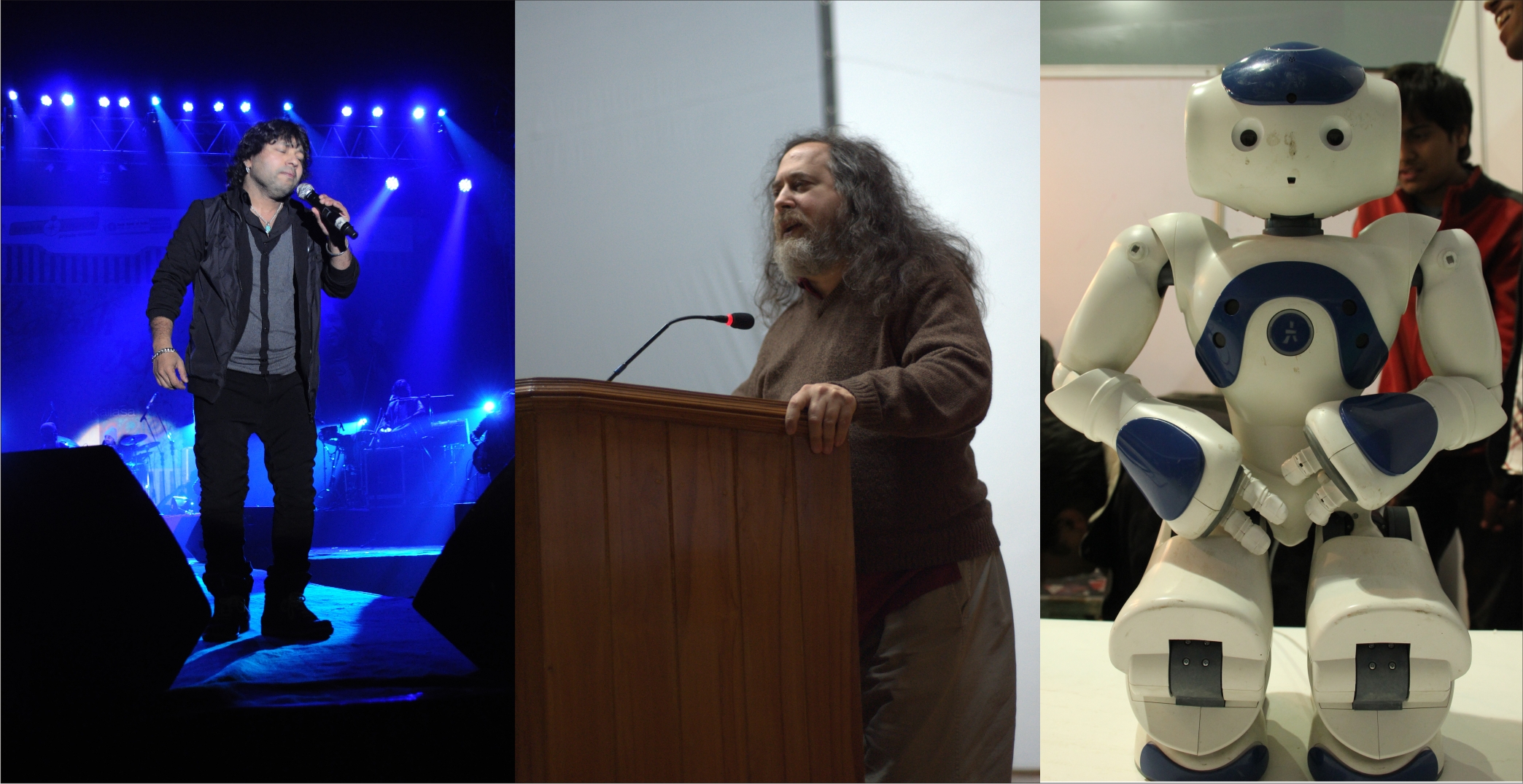
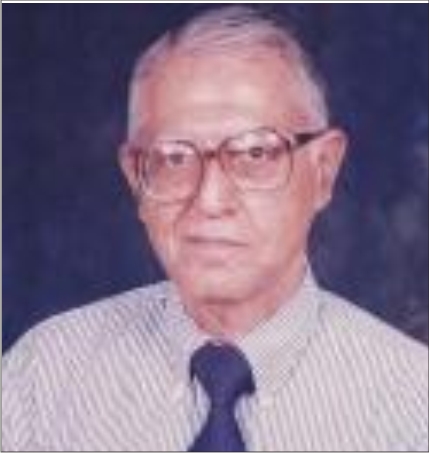 |
Professor Mullick passed away on 15th February, 2012. Prof. Mullick was born on 7th July, 1935 in Punjab. He had his education in Calcutta where he completed M.Sc. (Electronics) in 1958 from Calcutta University. Subsequently he was an associate lecturer at IIT Kharagpur from 1959 to 1962 in the Department of Electronics and Electrical Communication Engineering. He obtained his PhD from Cornell University in June 1965 and joined the IBM System development Division. Prof. Mullick joined the Department of Electrical Engineering, IIT Kanpur in 1967. He superannuated in 1995. Professor Mullick is survived by his wife Smt. Uma Mullick, one son and a daughter.
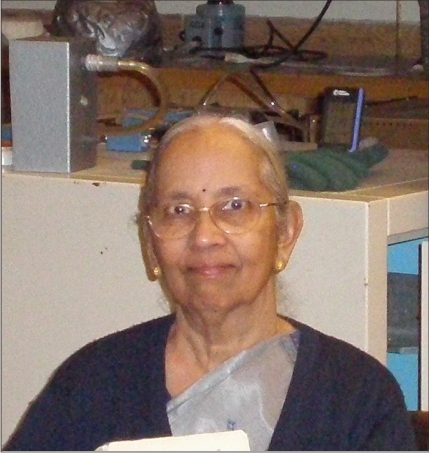 |
Professor Lalita Sarkar passed away on 8th February 2012 after being unwell for a couple of months. Prof. Sarkar was born on the 8th August 1936. She obtained her PhD from the University of British Columbia (Canada) subsequent to which she joined IIT K as a lecture in 1967. She superannuated in 1996, was reemployed and finally retired on the 30th June 1997. Prof. Sarkar, who was one of the early faculty members in the Physics Department, played a major role in shaping the Department as well as the curriculum. Together with her husband, Prof. Basant Sarkar who was faculty member in the Electrical Engineering Department, she strove for a just society within the campus, especially for the many underprivileged workers of those times who were without any assurance of their continued livelihood. Prof. Sarkar is survived by her son Arnab.
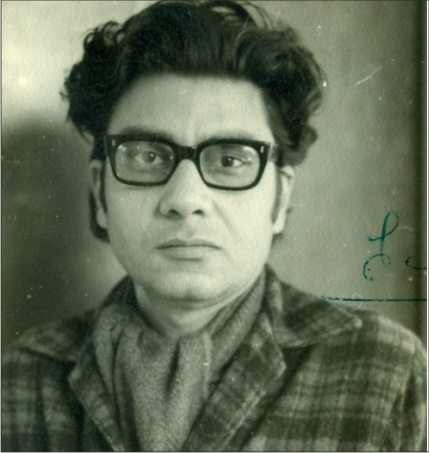 |
Professor
Pandey passed away after a phase of ill health in Bhopal
on 20th February, 2012. Prof. Arun Chandra Pandey was born in Faizabad,
U.P. in September 1936. He completed his M.A. in Linguistics from Lucknow
University in 1963. Prof. Pandey joined as a faculty member in English
in the Department of Humanities and Social Sciences in May 1964. In the
late 1960s he spent some time in UCLA, USA on a KIAP (Kanpur Indo-American
Program) fellowship, and returned in 1970 with a certificate in TESOL
(Teaching English to Speakers of Other Languages). Thereafter, he pursued
his Ph.D.in Linguistics and obtained his doctoral degree in 1979. He continued
as a faculty member at IIT Kanpur until 1994, at which time he took voluntary
retirement. Dr. Pandey is survived by his wife Smt. Rajni Pandey, and
a son.
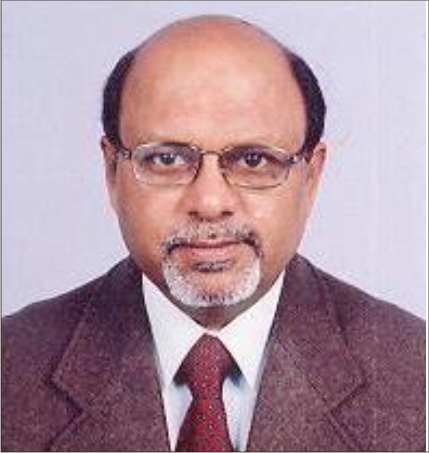 |
Shri Sanjeev Kashalkar, Registrar, IIT Kanpur passed away on 10th March, 2012 at a private hospital in Gurgaon following a brief illness. Shri Kashalkar was suffering from heart ailments for the last one month. Shri Kashalkar was born on 13th June 1955 at Allahabad. He completed his BA and MBA from Allahabad University. Thereafter, he obtained a PG Diploma in Foreign Trades from IIFT New Delhi, and an LLB from Allahabad University. Prior to joining IIT Kanpur as Registrar in 2005, Shri Kashalkar worked in various places like the Gramophone Company of India Limited, Kolkata, Al Shirawi Group in Dubai (UAE), Bhawani Paper Mill Limited, Allahabad, as Administrator, Kamla Nehru Memorial Hospital, Allahabad and at Harish Chandra Research Institute, Allahabad as its Registrar. Recently Shri Kashalkar had visited Japan, USA and Germany as a member of a delegation on behalf of the government of India. Shri Kashalkar is survived by his father, wife, one daughter and one son.
The Institute expresses its deepest condolences to the bereaved families of Prof. Mullick, Prof. Pandey, Prof. Sarkar and Shri Kashalkar and prays for the peace of the departed souls.
Published
by: Office of the Dean, Resource Planning & Generation, Indian Institute
of Technology Kanpur, Kanpur-208 016, India
Phone: + 91-512-259 7635/ 7542 Fax: +91-512- 259 0353 Email – drpg@iitk.ac.in,
arrpg@iitk.ac.in


